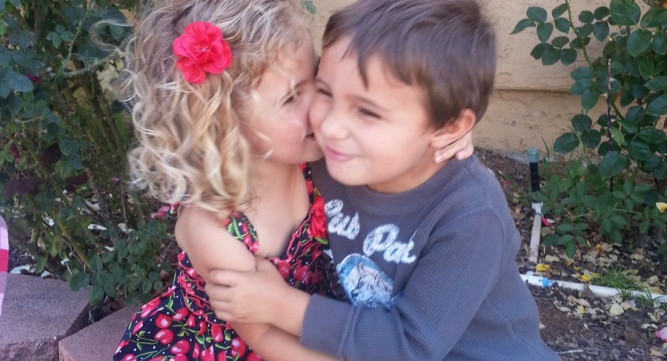
.jpg)
April 1st can seem like consolation day for many gifted high school seniors. And it's no joke.
College admissions offers have been received, and many families learn on April Fool's Day that their gifted child will not be attending the college of their choice. With acceptance rates less than 10% at many highly selective colleges, even exceptional students are shut out.
When gifted children are young, many parents assume that high school success will translate into an array of college choices. Many are shocked and bitter when their child is rejected from a wide range of schools. They may believe they have been deceived and betrayed; their child’s hard work and effort was ignored, and raw talent and ability overlooked.
I wrote a similar article about college admissions ten years ago. Both of my kids were in college and had already weathered the college application process. Despite some fun times visiting a variety of colleges, waiting for acceptances and then narrowing down their choices was... shall we say, a challenge. Fortunately, they landed at great schools that seemed an ideal fit for their social and academic needs.
Over the past year, I have spoken with parents whose children applied Early Decision to their dream school in hopes this would increase their odds of admission. These teens are all amazing, lovely, accomplished students with great potential. Yet, all were rejected.
Those whose children applied for regular decision have all likely received their notifications. Some may be elated. Many might feel both excited and anxious about choosing between several colleges where they were accepted. But some are left to feel angry and deflated and must settle for a "safety" school they never assumed they would attend.Why do so many gifted children get rejected from colleges they are presumably qualified to attend?When highly selective colleges are inundated with applications, they have to draw the line somewhere. They have quotas, priorities and long-range goals, along with financial burdens. While most would likely prefer to admit the most talented, high-achieving students they can find, selecting who fits this criteria is complicated. And the sheer number of academically successful applicants is astonishing. National Merit Finalist Valedictorians with stellar SAT's are viewed as commonplace, and most will be rejected without some additional compelling qualifications. College admissions officers at these selective schools will tell you they are seeking a well-rounded, diversified class of students. They claim to use “holistic admissions,” viewing the whole student and not just grades and SAT scores. Yet, this term is often used as a thinly veiled excuse for achieving quotas based on geographic location, ethnicity, and athletic ability, along with wealth, and legacy connection (otherwise known as “hooks”). The highly publicized college admissions cheating scandal several years ago pointed to the dark side of college admissions, along with the extent some parents will go to advance their child's career. While many families rage about the unfairness of admissions policies, the reality is that most “unhooked” students will get rejected by many of their top choices. A Forbes article from over a decade ago highlights the disingenuous admissions process. Not much has changed over the past decade.What if your child is still in the college-planning process?Gifted students often need to create a profile that is quite exceptional and well beyond the norm. When a gifted, high-achieving student does not possess the "hooks" that boost the likelihood of acceptance, they will need to stand out from the crowd. This is especially true for those who attend public school or are homeschooled, since many private schools have counselors dedicated to maintaining connections with elite colleges. A 4.0 and top SAT scores may prompt a closer look, but without other outstanding qualifications, the elite, tippy-top schools will toss their application into the rejection pile. To garner a "second look," students need an application that conveys a depth of ability and achievement, such as performing independent research, excelling at college courses (taken as part of dual enrollment), exceptional mastery in the arts, awards from science fairs or other demanding competitions, or truly innovative extracurriculars or volunteer work. Sometimes, they need all of the above to demonstrate both breadth and intensity of focus. Their efforts need to clearly convey their aptititude as well as their motivation to tackle unique and challenging work.But not all gifted students need to attend one of the elite, tippy-top colleges!Before applying to highly selective colleges, parents need to clearly understand their child's social, emotional, and academic needs. They also must consider their child's realistic chances for admission. Look at the highest percentiles for acceptance rates at the colleges in terms of grades, SAT scores and other requirements. If your child is in that range, he or she may stand a chance. But realize that acceptance to an ivy league or comparable school (such as Stanford or MIT), is almost impossible to predict. There are a lot of benefits for gifted students at these elite colleges (including exceptional financial aid); however, there are many great colleges out there that should not be overlooked.It is essential that gifted students identify less competitive schools that would be a good fit and would readily welcome them. Many schools offer honors programs and other specialized tracks that can provide a great education. Gifted students can excel wherever they go and will find mentors, excellent professors and innovative programs that can stimulate their creativity. Attachment to a "dream" school is a set-up for disappointment in the capricious, uncertain world of college admissions.A note to current seniors:If you have just received your letters of admission, hopefully you are relieved and excited. If you received rejections, it is important to appreciate the competitiveness of these schools and not assume it is a reflection on your abilities. It may not seem fair that you didn't get into the school of your choice. But you can use your abilities to thrive wherever you go. And perhaps this experience will help you gain perspective and develop resilience when facing future challenges. Good luck with your decisions!This article is an update to April 1st is no joke for some gifted high school seniors. Photo above is courtesy of to Unsplash/Tim Gouw** For more insights about parenting gifted children, please see my book, The Gifted Parenting Journey. Available through the publisher and the usual bookseller sites, this book addresses a previously neglected topic in the literature: the needs and emotional life of parents of gifted children. For more information about this book, snippets from editorial reviews, and upcoming workshops and book events, please see this link.**



